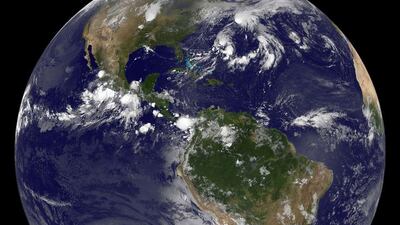The word sustainability is often overused and abused, with many people assuming it merely relates to the environment. In reality, the word encompasses everything from being green to more serious global catastrophes caused by climate change. The economic challenges stemming from increased production and consumption, the impact on society and the three pillars of sustainability (social, environmental and economic) are all interrelated. We live in an interconnected and fragile world where our actions have a global effect that could transcend generations.
The 1987 Brundtland report’s definition of sustainability is “development that meets the needs of the present without compromising the ability for future generations to meet their own needs”. While that is rather vague, we now have the UN Sustainability Goals, or SDGs, encompassing 17 goals that the world has taken a pledge to uphold to protect the planet for future generations. The goals are meant to unite everyone in a focused, concerted effort to meet 169 related targets by 2030.
From an environmental point of view, the recent Intergovernmental Panel on Climate Change report stressed the fact that if the world's temperature increases by just 1.5 degrees, the effect on humankind will be devastating. This is the hottest time in the history of human beings surviving on this planet. Climate migrants, also known as climate refugees – people who flee their native land due to a sudden change in their environment – are on the rise, while 143 million people globally are under threat from unusual and extreme weather conditions. You might be wondering why we aren't doing much to change our personal behaviour to contribute to the SDGs, or doing something to resolve the alarming problems we read about, but the human brain seems wired to make us sit back and wait unless things affect us directly.
With a proliferation of the use of the word sustainability, a new language has developed around the concept, which is ultimately nothing but jargon. Indeed, a whole new terminology and glossary have sprung up to deal with the crisis, but this might be the very reason why less action is currently being taken. We need to simplify the language we use to describe sustainability because, when we boil it down to its bare essence, it is basically about humanity, caring for the environment and ensuring that future generations can live comfortably. We will only be able to do so if a simplified language is used to convey that message.
You might be asking yourself what you as an individual can do to help. I would suggest you begin by becoming more aware of the impact you create through the products that you purchase. Everyone can contribute by making better choices, such as reducing their purchase of single-use plastics and paper cups, using recyclable cups instead and cutting back on meat consumption. Most of the time, we do not ask ourselves why we do things a certain way, but it is time to increase our awareness and reduce our consumption of all resources, from water and electricity to consumer goods. We may be exploring other planets such as Mars, with a view to finding a potential new home for humankind to inhabit, but let’s not destroy planet Earth in the meantime. We do not have anywhere else to go if we do.
We can all play a part in contributing to sustainability. The idea of doing things for the greater good struck me recently when I heard about the UAE's National Programme for Organ Transplantation. I did some research and decided to post a poll, asking whether people would be interested in donating their organs after their death. For me, it made perfect sense to sign up, so I went through the Ministry of Health's simple application process. I spoke to children who were going through dialysis treatment, spending eight to 12 hours a week in hospital, who had one simple wish: to receive a kidney that would enable them to live a normal life. Giving the gift of life to someone is, for me, the mindset that is needed to make this world a better place. As for my poll, 73 per cent of the people who responded said they would sign up for the programme, which I found very reassuring.
We should believe the science and data that all point to the need for urgent action. And we must all play our small part in changing the world for the better, for the sake of everyone’s future. I encourage you to see how you can create a better world through the choices you make on a day-to-day basis. It is the responsibility of each and every one of us, because no one else will save our planet. We all need to act and take that first step on the journey.
Sheikha Shamma bint Sultan bin Khalifa Al Nahyan is Chief Executive Officer of Alliances for Global Sustainability


